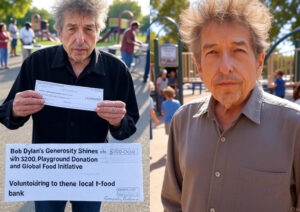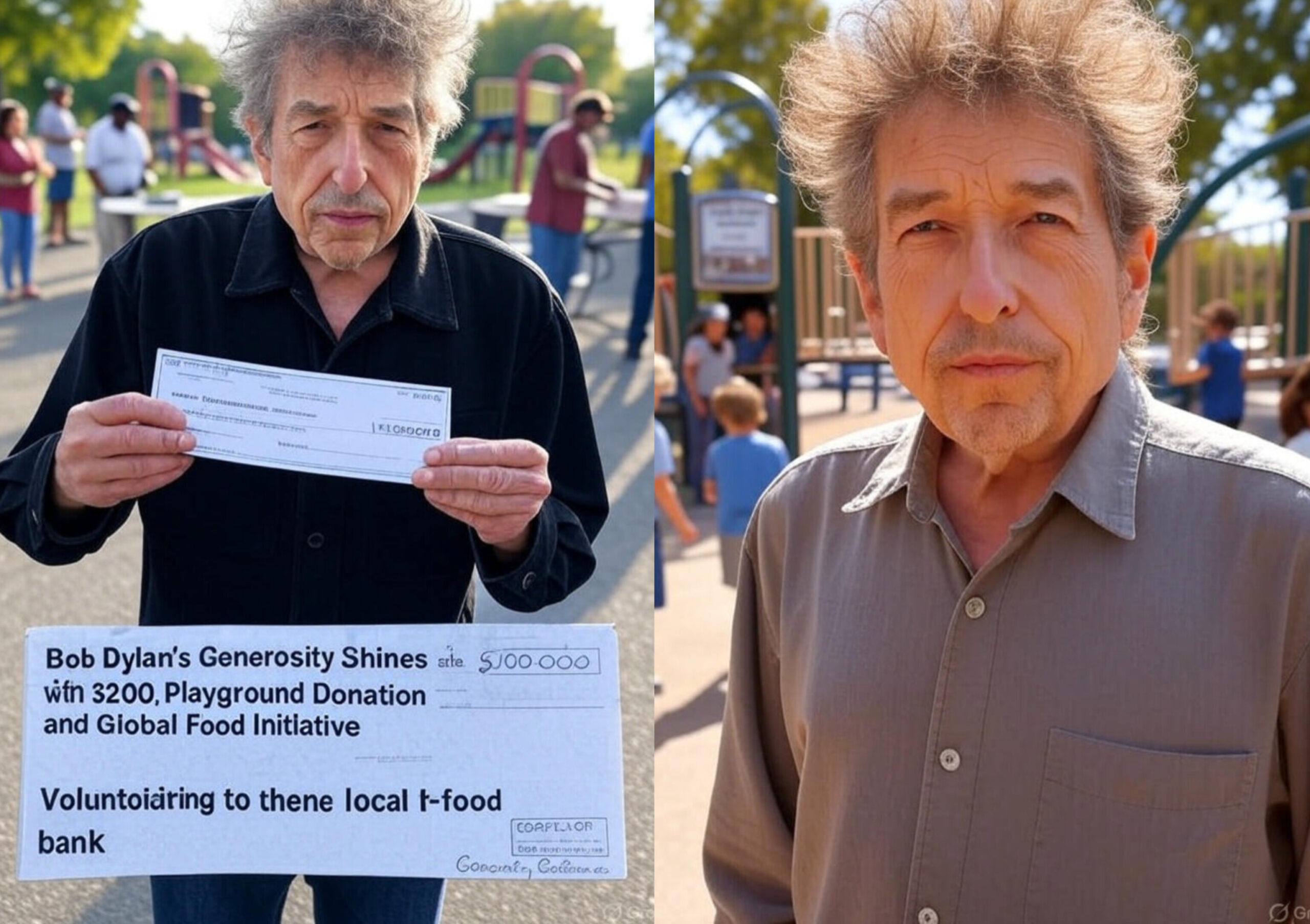Bob Dylan’s Generosity Shines with $200,000 Playground Donation and Global Food Initiative
Bob Dylan has made headlines for his recent acts of philanthropy, including a $200,000 donation to build an accessible playground for disabled children in Rockford, Illinois, a gesture that highlights his commitment to community welfare. The contribution, sparked by his 2010 visit to the city where he performed and noticed a local newspaper article about fundraising efforts by parent volunteers, will fund a new inclusive play space set to open in 2026. This follows his earlier $20,000 donation in 2010 for a similar cause, showcasing his ongoing support for accessible recreation. Fans have praised this move on social media, noting it aligns with his legacy of social awareness reflected in songs like “Blowin’ in the Wind.”

In addition to the playground project, Dylan has partnered with the World Food Programme to support school meals for children in need, amplifying his global humanitarian efforts. This collaboration aims to provide nutritious meals to underserved students, leveraging his influence to address food insecurity. While specifics on the partnership’s scope remain limited, the initiative underscores his interest in supporting education and nutrition, themes that resonate with his early career as a voice for the marginalized. This effort complements his personal engagement with causes, adding a practical dimension to his artistic activism.
The University of Tulsa houses Dylan’s extensive archives, acquired by the George Kaiser Family Foundation in 2016, which include over 100,000 items spanning his career. Initially stored at the Helmerich Center for American Research at Gilcrease Museum, the collection—featuring handwritten lyrics, recordings, and memorabilia—now forms the backbone of the Bob Dylan Center in Tulsa, opened in 2022. This move, influenced by Dylan’s admiration for Woody Guthrie’s nearby archive, positions Tulsa as a hub for American music heritage, though some question why a Minnesota native chose the heartland over coastal cities.
Dylan’s philanthropy contrasts with his enigmatic public persona, raising speculation about his motivations. Some suggest these acts reflect a desire to give back quietly, avoiding the spotlight he shunned after his 1966 motorcycle crash, while others see it as a continuation of his 1960s protest ethos. The playground project, in particular, has drawn local support in Rockford, with community leaders planning a dedication ceremony, though Dylan is unlikely to attend, consistent with his preference for privacy.

As Dylan, now 84, continues his Never Ending Tour, these initiatives enhance his legacy beyond music. The playground and food program, alongside the Tulsa archives, paint a picture of an artist using his resources to effect change, inviting fans to see him as both a cultural icon and a philanthropist. With the Bob Dylan Center fostering creativity and the new book Decade of Dissent exploring his 1960s impact, his influence remains multifaceted and enduring.

